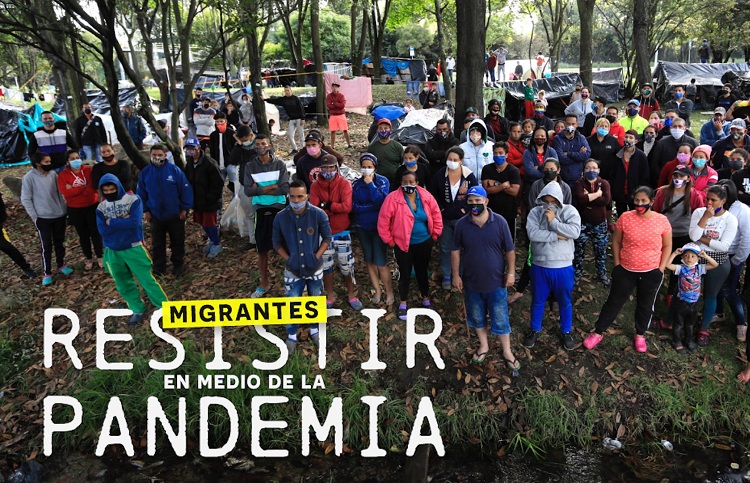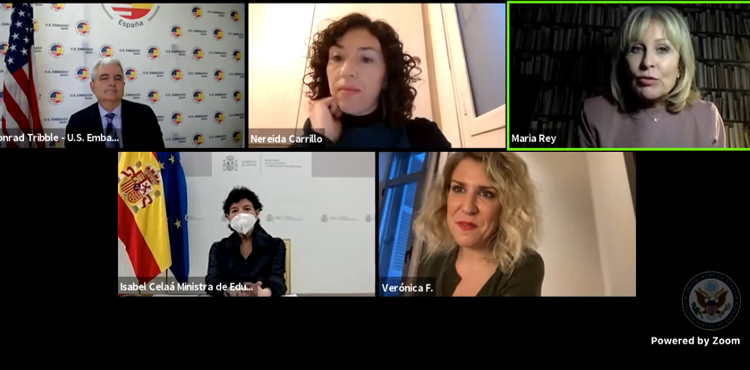The Diplomat
The problems and social protests in Latin America and the Venezuelan migration to Colombia have been the protagonists of the 38th edition of the King of Spain International Journalism Awards, jointly granted by the Spanish Agency for International Development Cooperation (AECID) and the Efe Agency.
The prizes were awarded last Wednesday by a jury composed of prominent international journalism professionals, which met for the first time telematically due to the coronavirus pandemic, as reported yesterday by the AECID. The King of Spain International Journalism Awards have been granted annually since 1983 with the aim of recognizing the informative work of Spanish and Portuguese language journalism professionals from the countries of the Ibero-American community or those with which Spain has historical, cultural or cooperation links. The awards have been presented since their inception by the King and Queen of Spain and among the winners are Mario Vargas Llosa, winner of the Nobel Prize for Literature, and the Spanish writer Arturo Pérez Reverte.
The Ibero-American Journalism Award went to the report Migrantes: resistir en medio de la pandemia (Migrants: resisting in the midst of the pandemic), by journalist Jhon Torres Martínez, of the Colombian newspaper El Tiempo. According to the jury, the report, published in June 2020, explains “very well”, through 15 personal stories, the “exodus” of Venezuelan migrants displaced to Colombia because of the serious political, social and economic crisis in their country and “serves to draw attention to this tragedy” and to “the struggle of those who survive in a foreign country immersed in the uncertainty caused by the coronavirus”.
On the other hand, the King of Spain Digital Journalism Award corresponded to the report Los vídeos del estallido social, published by journalist Tania Soledad Opazo Guerrero in the Chilean digital newspaper La Tercera and which tells the stories behind the videos captured by Chileans with their cell phones during the social outburst occurred in Chile in 2019 and 2020. Likewise, the award in the Cultural and Social Development category went to the Univisión Noticias Digital network for the report Calladitas nunca más, “which revives the demonstrations of Mexican women” in their struggle “against gender violence”.
Likewise, journalist Juan David Cardozo won the King of Spain Radio Award for his interview Cliver Alcalá: El general (r) venezolano que confesó su plan para asesinar a Nicolás Maduro, broadcast live by W Radio Colombia, and the also Colombian Carlos Alberto Emilio Velásquez Piedrahita won the award in the Photography category for his image El último abrazo, which, according to the jury, summarizes “the news event and the impact captured of something as heartbreaking as the loss of a brother”.
The first Ibero-American Special Prize for Environmental Journalism and Development went to Portuguese journalist Catarina Isabel Canelas Gonçalves for a report for the Portuguese TVI channel on the impact of plastic, and Cuban journalist Nayare Menoyo was awarded in the Television category for her work Leonardo Padura, una historia escuálida y conmovedora (Leonardo Padura, a squalid and moving story). The jury also honored El Periódico de Guatemala with the Outstanding Iberoamerican Media Award for its “tireless work of investigative journalism for which its director and team have suffered attacks, persecution, smear campaigns and even commercial blockades”.
In the Press category, the Spanish journalist Pedro Simón of the newspaper El Mundo was awarded for his report entitled Hugo, historia de un corazón, and the Cuban Carlos Manuel Álvarez Rodríguez won the Don Quijote Journalism Award, in its XVII edition, for his article Tres niñas cubanas, published in the Cuban magazine El Estornudo, in which he recalls the collapse of a balcony that killed three girls to denounce the deterioration of housing in many neighborhoods of Old Havana.







